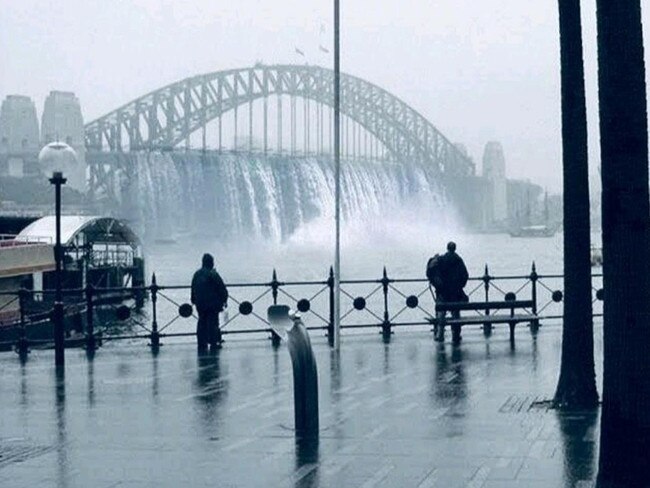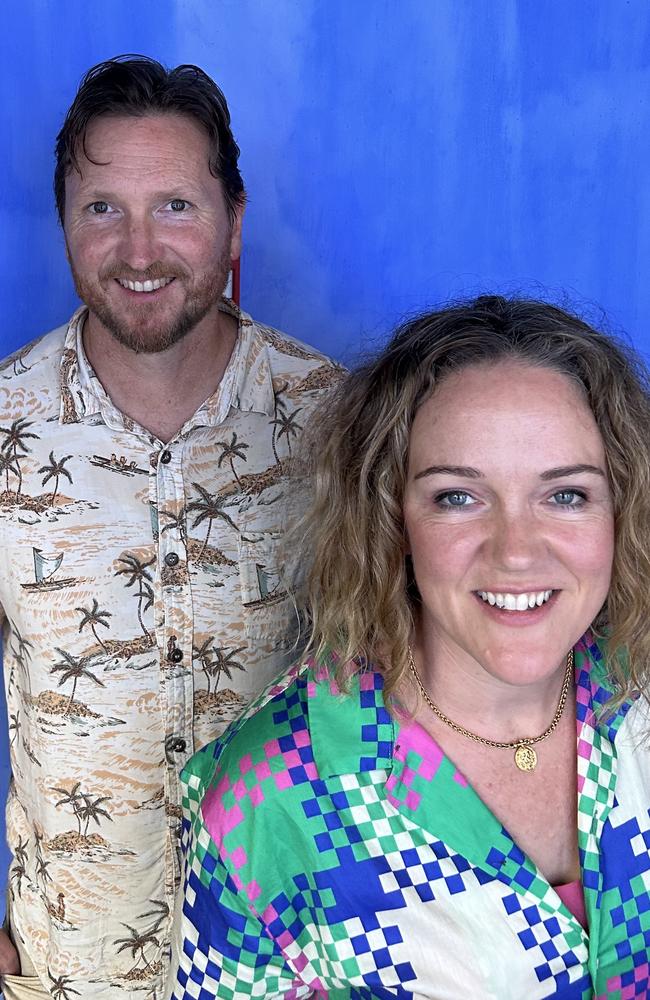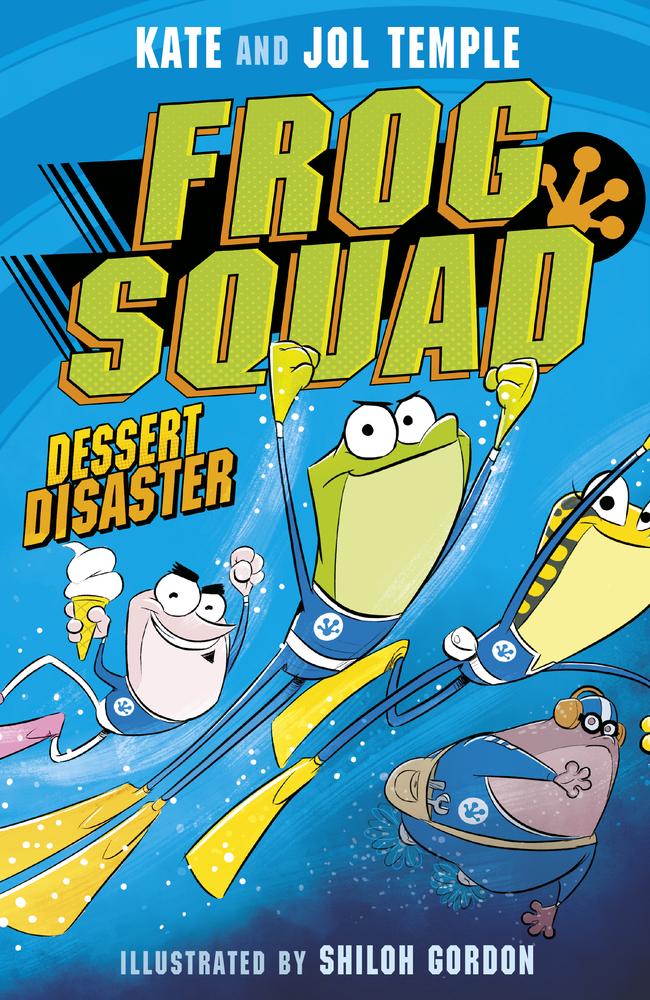‘Spot a scam’: How a comedy kids book is taking on fake news
With up to 63 per cent of kids and teens getting news from social media, how do we help them dodge fake content? Don’t panic, says Kate Temple – there is a way and you can start now.
Books
Don't miss out on the headlines from Books. Followed categories will be added to My News.
One very rainy day, my son showed me a photo of the Sydney Harbour Bridge cascading with water. I was astounded; it looked like Niagara Falls. I’ve lived in this city for 20 years and I’d never seen such a dramatic sight. There’s a reason for this – it was a fake. But for a few exciting minutes, I was right there for it.
Perhaps as a fiction writer, I’m open to being amazed. I want to believe the unbelievable. Like everyone, I’ve had to learn to be more discerning when it comes to images, but it doesn’t come naturally. We’re designed to trust our eyes and believe what we see. So, if it’s tricky for an adult to filter fakes, how do we support children who are growing up in a world that isn’t always what it seems?

Right now, parents and educators are on the front lines when it comes to media literacy. Media literacy is the skill of decoding what we see and read and understanding how it’s being presented to us so we know what to believe. It’s more important than ever because we’re facing a tsunami of fake news, AI images, advertisements as content and deep fakes. It’s a lot for anyone to get their heads around, let alone developing brains that are spending an increasing amount of time in the digital space. Today, kids are online for a whole host of reasons, from entertainment to education, and like the rest of us, it’s where many of them get their news. According to the recent News and Young Australians Survey, 37 per cent of children and 63 per cent of teens say they often or sometimes get news from social media. They’re not necessarily looking for news but sometimes it’s looking for them.
And while these digital natives are frequently more tech savvy than adults, the online space is constantly changing. AI has brought new opportunities, but it’s also made it child’s play to create polished and believable fakes. So how do we ensure kids are media literate in this dynamic digital environment? How do we foster the skills to decipher the motive behind the meaning?

The answer: critical thinking.
There are two things we can do to actively support kids. The first is engage children in conversations about the messages they receive. Ask children to spot fake images and critique content together. It’s not only fun, it’s empowering. Ask them if an image looks fake or if the soft drink their favourite YouTuber is selling is content, advertising or both?
Of course, given the amount of time kids spend online, we can’t always be there to have those conversations. We need to raise a generation who have the tools to do it themselves. It’s no surprise that one of the best ways kids can become critical thinkers is by becoming lifelong readers. Reading requires children to analyse text, question the world around them and form their own views.
This is where funny books can make a real impact. Books that use humour are in a unique position to engage young readers with big questions. Comedy and critical thinking go hand-in-hand, and for kids this creates opportunities for incidental learning and unexpected insights.
A children’s book like Frog Squad: Dessert Disaster, which plays with format and presents itself as a reality TV show, complete with froggy ad breaks, asks kids to think critically about the media. What is an ad? Who is selling me something and how do they do it? Deconstructing this puts kids in the driver’s seat and fosters media literacy through playfulness.

That playful mindset is so important for young children as they question the truthfulness of what they see. It’s too easy to become cynical, which can hinder learning. Instead, media literacy needs to begin by developing an open, inquiring mind. This helps kids to navigate the shifting digital space with a positive and empowered mindset. At the heart of it, media literacy is about safely exploring the world and identifying what you can trust.
Knowing how to spot a scam, avoid a hoax and decipher misinformation are vital skills for us all. It might even help me spot a fake the next time Sydney Harbour Bridge turns into a waterfall.
Kate Temple has a PhD in organisational studies, is an internationally-awarded children’s author and, with husband Jol Temple, is the co-author of Frog Squad: Dessert Disaster, the first book in a new series, published by HarperCollins and available now.
For something aimed at older tastes, check out our Book of the Month, Abigail Dean’s Day One. Get it for 30% off the RRP at Booktopia with the code DAYONE. T & Cs: Ends 30-Apr-2024. Only on ISBN 9780008389277. Not with any other offer.
And whatever your reading style, come and share it at the Sunday Book Club on Facebook.



